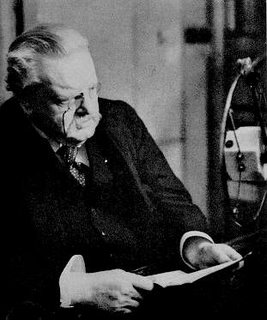The rebuilding of this bridge between science and human nature is one of the greatest needs of mankind.If you are interested in science, mathematics, engineering, and technology - or if you are a "lit'ry" scholar, or a historian - or even if you are a "tech-muggle" and try to ignore these fields while continuously relying on them - well, then I would strongly urge you to read this book. It is relatively small, only four chapters long - but contains GKC quotes from dozens and dozens of his books. The four chapters are called:
[S. L. Jaki, Chesterton a Seer of Science quoting GKC, The Defendant]
1. "Interpreter of Science"
2. "Antagonist of Scientism"
3. "Critic of Evolutionism"
4. "Champion of the Universe"
People have been trying to deny, refute, or otherwise despise GKC's very technical background, but Jaki provides all the rebuttals with full references to the relevant literature - meaning GKC's books. (That book is available through the ACS. And if you want to know Jaki's other books on science, religion, and history, visit Real View Books.
I have to laugh when I read the Luddites saying "I am not a Luddite" on TV or in magazines or bloggs - those who try to abolish technology with technology - indeed, I have to laugh, because for them GKC had a great reply:
A cosmos one day being rebuked by a pessimist replied, "How can you who revile me consent to speak by my machinery? Permit me to reduce you to nothingness and then we will discuss the matter."
Moral. You should not look a gift universe in the mouth.
[quoted in Ward, Gilbert Keith Chesterton]
But there are some who wouldn't believe, even if they saw GKC sitting in front of a microphone...

[GKC at the BBC microphone, sometime in the 1930s; from Maisie Ward's biography]
Here's some more of GKC on this very important topic:
The child is, indeed, in these, and many other matters, the best guide. And in nothing is the child so righteously childlike, in nothing does he exhibit more accurately the sounder order of simplicity, than in the fact that he sees everything with a simple pleasure, even the complex things. The false type of naturalness harps always on the distinction between the natural and the artificial. The higher kind of naturalness ignores that distinction. To the child the tree and the lamp-post are as natural and as artificial as each other; or rather, neither of them are natural but both supernatural. For both are splendid and unexplained. The flower with which God crowns the one, and the flame with which Sam the lamplighter crowns the other, are equally of the gold of fairy-tales. In the middle of the wildest fields the most rustic child is, ten to one, playing at steam-engines. And the only spiritual or philosophical objection to steam-engines is not that men pay for them or work at them, or make them very ugly, or even that men are killed by them; but merely that men do not play at them. The evil is that the childish poetry of clockwork does not remain. The wrong is not that engines are too much admired, but that they are not admired enough. The sin is not that engines are mechanical, but that men are mechanical.
[GKC, Heretics CW1:112-3, emphasis added]
Please don't be mechanical. As GKC said, "I have often thanked God for the telephone." [WWWTW CW4:112] So let us thank God for the INTERNET, and blogging, and computers, and refrigerators, and cars, and electricity...






I love it. Great post, Dr. T.
ReplyDeleteMaybe before we turn on our computers in the morning, we should say a blessing, eh?
I agree with Nancy. Great post, T-man!
ReplyDeleteEric Hoffer once said that the concept of "play" was almost totally ignored in scholarly works. Look in the index and you'll "find Plato, but rarely Play".
At times Hoffer sounds like he's reading from "The Everlasting Man": “The Paleolithic hunters who painted the unsurpassed animal murals on the ceiling of the cave at Altamira had only rudimentary tools. Art is older than production for use, and play older than work. Man was shaped less by what he had to do than by what he did in playful moments. It is the child in man that is the source of his uniqueness and creativeness, and the playground is the optimal milieu for the unfolding of his capacities.”
Hoffer used to say that animals don't play in the same way we do, that if you observe cats in particular there is more seriousness and intensity in their playful moments than in our serious ones. I'm not so sure about that, but as one who makes his living doing "plays", I can say that without the playful mood show business is hell.
But all of this is beside my point. My question, Doctor, is how can one make head or tail out of Fr. Jaki? He is clearly a brilliant man, and a profound Chesterton scholar, but I get the feeling reading him that he knows so much more than his readers do that he makes allusions to things and concepts with which he's intimately familiar, but which we'll never understand because he can't imagine we're at a level so rudimentary as to need his gloss on these things.
For example, I'm halfway through his little book on Intelligent Design in which he makes a passing remark about the conncept of chance or randomness as implying order in the background, and I'm afraid he'll never come back around to explain such an intriguing remark, that it will be left as an aside - though it's something he's clearly meditated, reflected, and prayed about. Does this happen to you when you read Fr. Jaki?
One of the things about these blogs that makes them so much fun is that we all get to play, don't you agree?
God bless, and see Dr. Thursday's blog for a call to prayer.